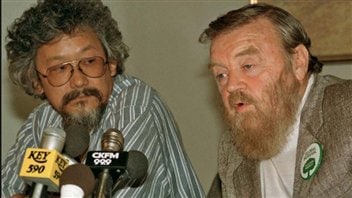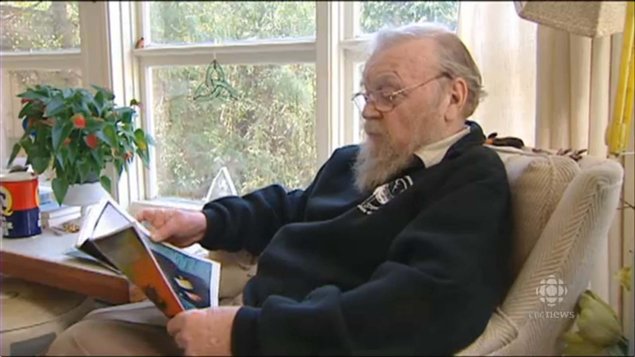Farley Mowat has died at age 92.
An internationally acclaimed author and strong environmental advocate, his works have been translated into some 52 languages and sold over 17 million copies, more than any other Canadian writer.

Mowat became known as a “character” during WWII, when after a career in heavy combat in Sicily, Italy, and northwestern Europe, he audaciously what he called the “!st Canadian Museum Collection Team” , and went about collecting captured German war material for Canadian museums.
Ignoring orders by the Allied Command that Canada was not to have access to V2 rocket technology, he nonetheless managed to steal a captured V2 rocket from the Americans, disguised it as a submarine and shipped it to Canada.
Later books would recount his military experience in My Father’s Son, and The Regiment.
After the war, he studied biology at the University of Toronto and on a trip to the Arctic became angered at the plight of the Inuit hunters which led to his first novel, People of the Deer (1952). It was an instant hit and resulted in a change in government policy.
Many other award winning books followed, many with the theme involving nature, such as Never Cry Wolf, another book made into a film in 1983 starring Charles Martin Smith and Brian Dennehy.
Never Cry Wolf, Lost in the Barrens, and Walk Well my Brother (all three adapted into movies) introduced Canada and Canadian nature, wilderness, and aboriginals to millions around the world.
Those books along with others such as A Whale for the Killing (also a film), were examples of how his work could make people pause and rethink their attitudes toward both nature and wild creatures.
His strong stance for nature and the environment also led to Patrick Watson of the Sea Shepherd Conservation Society environmental group ask to name their flagship in his honour.
His work spans fiction and non-fiction, children’s books, and humour, having won numerous awards in all categories.
Accolades are pouring in from politicians and the arts world. Fellow Canadian authors Margaret Atwood and Graeme Gibson described Mowat as “so good-natured and down to earth.”
“Farley was a great and iconic Canadian who understood our environmental problems decades before others did. He loved this country with a passion and threw himself into the fray — in wartime as well — also with a passion,” the pair said in a statement.







For reasons beyond our control, and for an undetermined period of time, our comment section is now closed. However, our social networks remain open to your contributions.